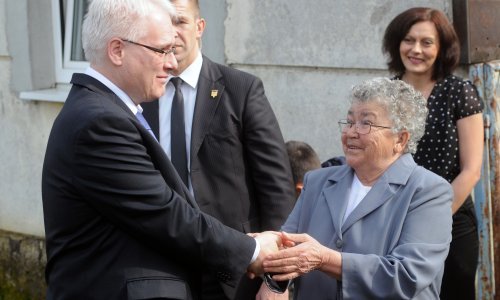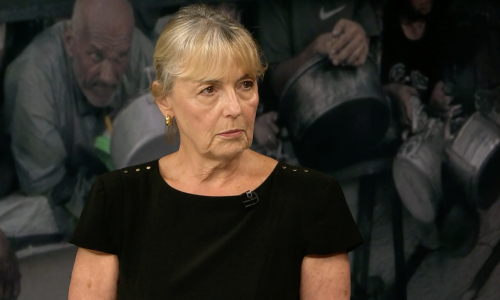Foreign and European Affairs Minister Vesna Pusic said in Zagreb on Wednesday that the Croatian diplomatic network would be downsized, starting with the closing of some consulates-general and the recall of ambassadors not good enough in representing the country.
Pusic and President Ivo Josipovic, who defines with the foreign minister the country's foreign policy, spoke about the guidelines of Croatia's diplomacy at a conference of Croatian ambassadors at the Foreign and European Affairs Ministry.
The conference, the first of the kind, brought together 46 bilateral and 6 multilateral ambassadors whose selection in the future would depend exclusively on their quality, Pusic said.
"All who are not good enough should be recalled. Those who are good enough should have the ministry's full support and represent Croatia in every sense of the word," Pusic told reporters.
Josipovic said he agreed with Pusic both with regard to the global and the specific goals of Croatia's foreign policy. Croatia can make a transition from the status of a small country to the status of a small, benevolent power, capable of actively fighting for its position, he said.
"There are enough professionals in the diplomatic corps who are good enough to implement such a policy," said Josipovic.
Asked about the closing of some embassies, Pusic said that she would not do it because it was "a politically sensitive issue", but that some consulates-general would be temporarily or permanently closed, notably in cases where there was a large number of consulates in a small area.
She said that Croatia was not considering sharing embassy buildings with other countries in the period leading to its accession to the EU, for the sake of its "recognisability", but that it would suggest introducing so-called travelling ambassadors who would occasionally travel from Zagreb to parts of the world that so far have not been covered by diplomatic missions, like sub-Saharan Africa or a large part of Asia.
Pusic said that the position of commercial attache, introduced by the previous, HDZ-led government, would be abolished because duties of commercial attaches can be performed by ambassadors, particularly in relations with fast-growing economies like China, India, Brazil, Turkey and Russia.
"It's not about ambassadors not being able to represent Croatia's economy, but about the need to have an economy that they would represent," Pusic said, adding that a portfolio was being made for ambassadors describing the investment climate which they should "market".
Asked about the reaction of foreign ambassadors to the government's appointment of ministers to supervisory boards of state-owned companies, Pusic said that she had assured them that it was a good policy, a statement supported by President Josipovic.
"If your conscience and your position is clear, you can explain your position. The state property should be privatised where it is possible, and where the state remains the owner, it must assume responsibility and that responsibility must be borne by concrete people," Pusic said.
Speaking of the government's plan to appoint two ministers to the supervisory board of the INA oil company, Josipovic said: "INA is an important national asset and the government will have my support in taking care of what is being done with national resources."

































